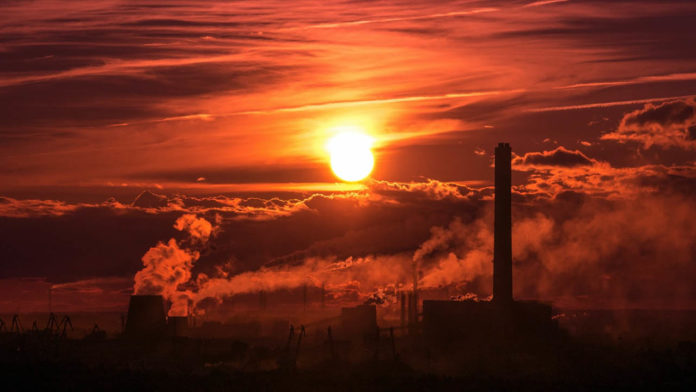As we all unfortunately know, there have been scorching hot temperatures raging through the Fraser Valley the past few days. Heat warnings were in effect until June 29, cooling centres were opened to the public, businesses and schools were shut down, and local temperature records were broken across B.C. The second worst part? The heat wave didn’t even let up once the sun went down, and the elevated temperatures continued their oven-like onslaught overnight. The actual worst part? The knowledge that this could become a regular occurrence if the climate crisis isn’t addressed.
With a heat wave this prolonged and intense being out of the ordinary in B.C., many are wondering if this particular event is linked to climate change — and the answer is sort of. Climatologists are hesitant to link specific weather events to the climate emergency, but they widely agree that increasing intensity and frequency of extreme weather events (like heat waves) can be linked to it.
Meteorologist Michael Kuss says this single event has to be put into context to fully understand it: “We have extreme highs and extreme lows all the time, and we have throughout history. It’s when we have a series of these events, that’s what signals or indicates that the climate is changing. And this isn’t just a one-off event, it’s a pattern.”
I hate to remind everyone, but people being hot and uncomfortable isn’t the sole problem of an increasing global temperature (although, it definitely sucks). It’s displacement of people, food insecurity, poor air quality, rising sea levels, increasing bacterial and mosquito growth, and more. If you’ve been affected by the heat wave and were inconvenienced, that was a taste of what’s possibly to come.
And make no mistake: not everyone is going to be affected by climate change equally. Those most affected by the climate crisis are going to be people that can’t afford to move to a more habitable place above sea level, can’t afford higher food and housing prices, or healthcare in countries where it’s privatized — i.e. it could be many of the struggling students of the future. Those even more vulnerable are going to be citizens of developing countries without proper infrastructure, those living in poverty, and working-class farmers, herders, and fishermen — people who depend on natural resources for income.
It’s frustrating as an individual, because often there’s the notion that big companies and industries are responsible for the bulk of the climate crisis, and that individual action is useless in the grand scheme of things — a distraction, even. And since the truth is messy, that idea is both right and wrong. Just 10 companies were responsible for 71 per cent of greenhouse gas emissions from 1988 to 2015, but that doesn’t mean individual responsibility doesn’t help save the environment. We’re not alone. Each person doing their part joins a larger community of people, businesses, and organizations fighting for a brighter (and cooler) tomorrow. Furthermore, people can act both individually to reduce their carbon emissions and collectively to demand action and accountability from industries. As a way to start getting involved, the David Suzuki Foundation shares 10 things you can do about climate change on their website, like making changes to your diet, consuming and wasting less, and opting for a greener commute.
Environment Canada states that the “prolonged, dangerous, and historic heat wave” could let up as early as Tuesday, June 29 for B.C.’s south coast, but it could persist until mid-week or early next week for other locations. For those of us still in this heat wave’s oppressive path, seek out local cooling centres and spray parks. If you’re remaining inside and unable to find air conditioning: turn off electronics and lights, close blinds to keep out the sun, stay hydrated, soak your feet or hands in cool water, take several cool showers and baths daily, use a folding fan, spray yourself with a water spritzer, or keep a damp towel handy for around your neck.
Stay safe and cool out there this summer, and hopefully none of us need these heat wave coping skills in the future.
Image: Ant Rozetsky / Unsplash
Chandy is a biology major/chemistry minor who's been a staff writer, Arts editor, and Managing Editor at The Cascade. She began writing in elementary school when she produced Tamagotchi fanfiction to show her peers at school -- she now lives in fear that this may have been her creative peak.


